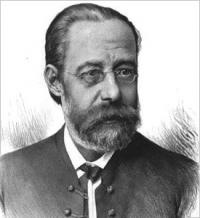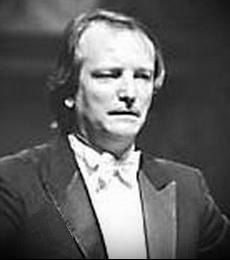
Libuše is a ``festival opera` in three acts, with music by Bedřich Smetana. The libretto was originally written in German by Josef Wenzig, and was then translated into Czech by Ervin...Read more
Libuše is a ``festival opera` in three acts, with music by Bedřich Smetana. The libretto was originally written in German by Josef Wenzig, and was then translated into Czech by Ervin Špindler. In Czech historical myth, Libuše, the title character, prophesied the founding of Prague. The opera was composed in 1871-1872 for the coronation of Franz Josef as Czech king. This didn`t happen and Smetana saved Libuše for the opening of the National Theatre in Prague, which took place nine years later on 11 June 1881. After the destruction of the National Theatre in a fire, the same opera opened the reconstructed theatre in 1883. The first US performance was reported to have occurred March 1986, in a concert version at Carnegie Hall with Eve Queler and the Opera Orchestra of New York.[1]
Commentators have noted the pageant-like nature of the opera and the influence of Richard Wagner in the music.[2] Libuse is a `festival opera` in three acts, with music by Bedrich Smetana. The libretto was originally written in German by Josef Wenzig, and was then translated into Czech by Ervin Spindler. In Czech historical myth, Libuse, the title character, prophesied the founding of Prague. The opera was composed in 1871-1872 for the coronation of Franz Josef as Czech king. This didn`t happen and Smetana saved Libuse for the opening of the National Theatre in Prague, which took place nine years later on 11 June 1881. After the destruction of the National Theatre in a fire, the same opera opened the reconstructed theatre in 1883. The first US performance was reported to have occurred March 1986, in a concert version at Carnegie Hall with Eve Queler and the Opera Orchestra of New York. Commentators have noted the pageant-like nature of the opera and the influence of Richard Wagner in the music. Roles Queen Libuse - soprano Chrudos - bass Stahlav, younger brother of Chrudos - tenor Radmilla, sister to Chrudos and Stahlav - contralto Krasava - soprano Lutobor, father to Krasava - bass Premysl, a farmer from Stadice - baritone Radovan - baritone Synopsis Act 1 The brothers Chrudos and Stahlav are fighting over the settlement of their father`s estate, with Queen Libuse as arbiter. Czech law dictates either co-management or equal division of the land. German law, which Chrudos, the elder, favours, would demand primogeniture, where the elder sibling would inherit the entire property. Libuse decides in favour of equal division, to the anger of Chrudos, who leaves. Because some of her male subjects, including Chrudos, do not fully accept the idea of a woman as their ruler, Libuse then asks her subjects to choose her husband. They say that she should make her own decision on her spouse, where it turns out that she prefers the farmer Premysl. The act ends as the subjects worry about Chrudos and the possibility that he will sow discord. Act 2 Scene 1 Part of the reason for Chrudos` ill humour is revealed, in the relationship of Chrudos to Krasava. Chrudos loves Krasava, who returns his sentiments, but considers him insufficiently romantic in his personality. Krasava thus feigns romantic interest in Stahlav to make Chrudos jealous. Her father, Lutobor, asserts his authority and demands that she reconcile the quarreling brothers. Krasava then challenges Chrudos to either (a) forgive and embrace her, or (b) kill her with his sword. Chrudos takes the route of forgiveness, and reconciles with Stahlav. Scene 2 Premysl is watching over the harvest on his lands. A royal escort then arrives to bring him to Queen Libuse, to be married. Act 3 A celebration of the double wedding, of Libuse to Premysl, and of Krasava to Chrudos, is taking place. Premysl devises a way for Chrudos to apologize to the queen while still saving face. A moment of prophecy then takes hold of Queen Libuse, and she tells of future visions for the Czech nation. Õ Close Show records by: listenings count | performer's rating | alphabetical |
||






